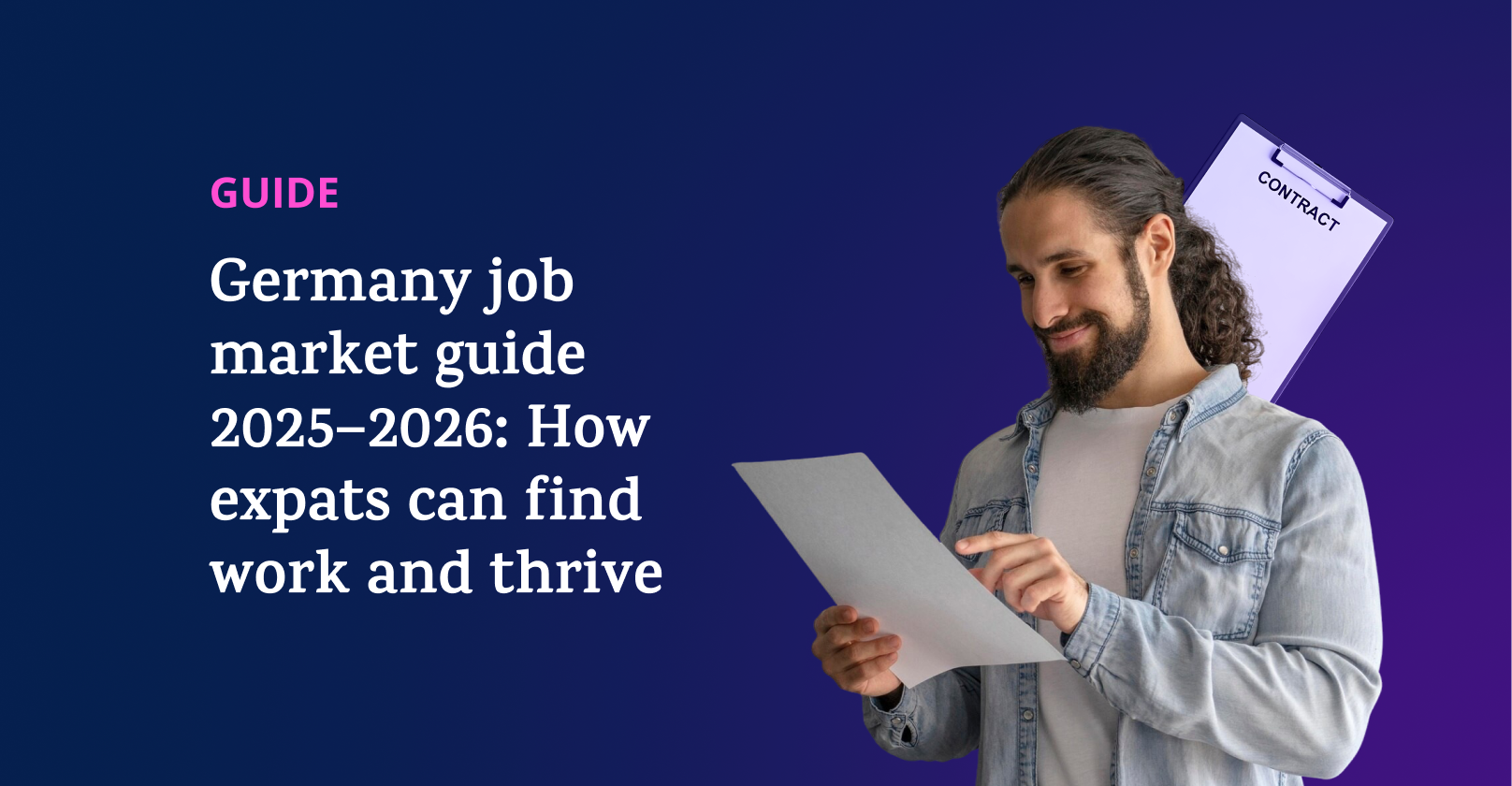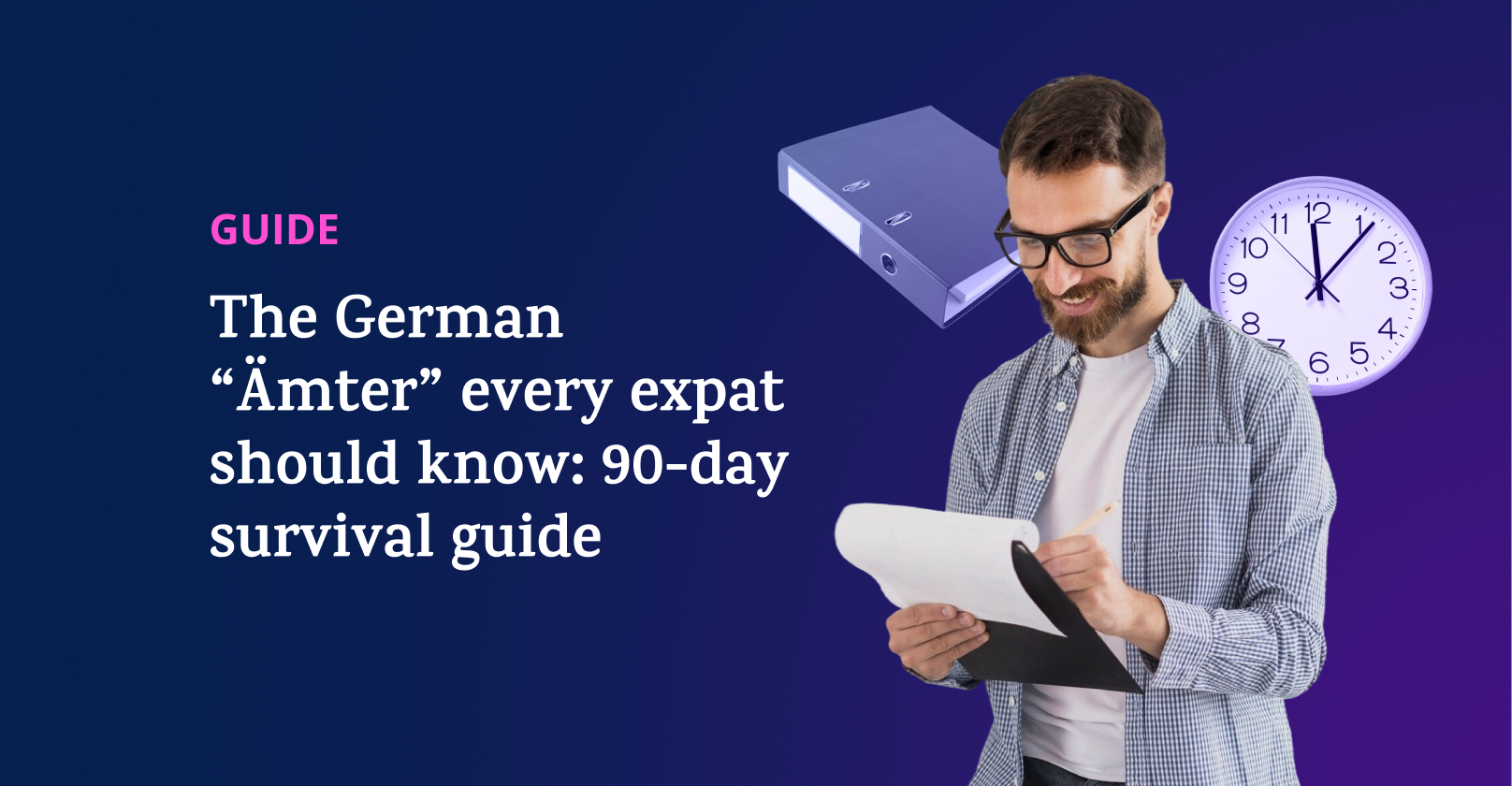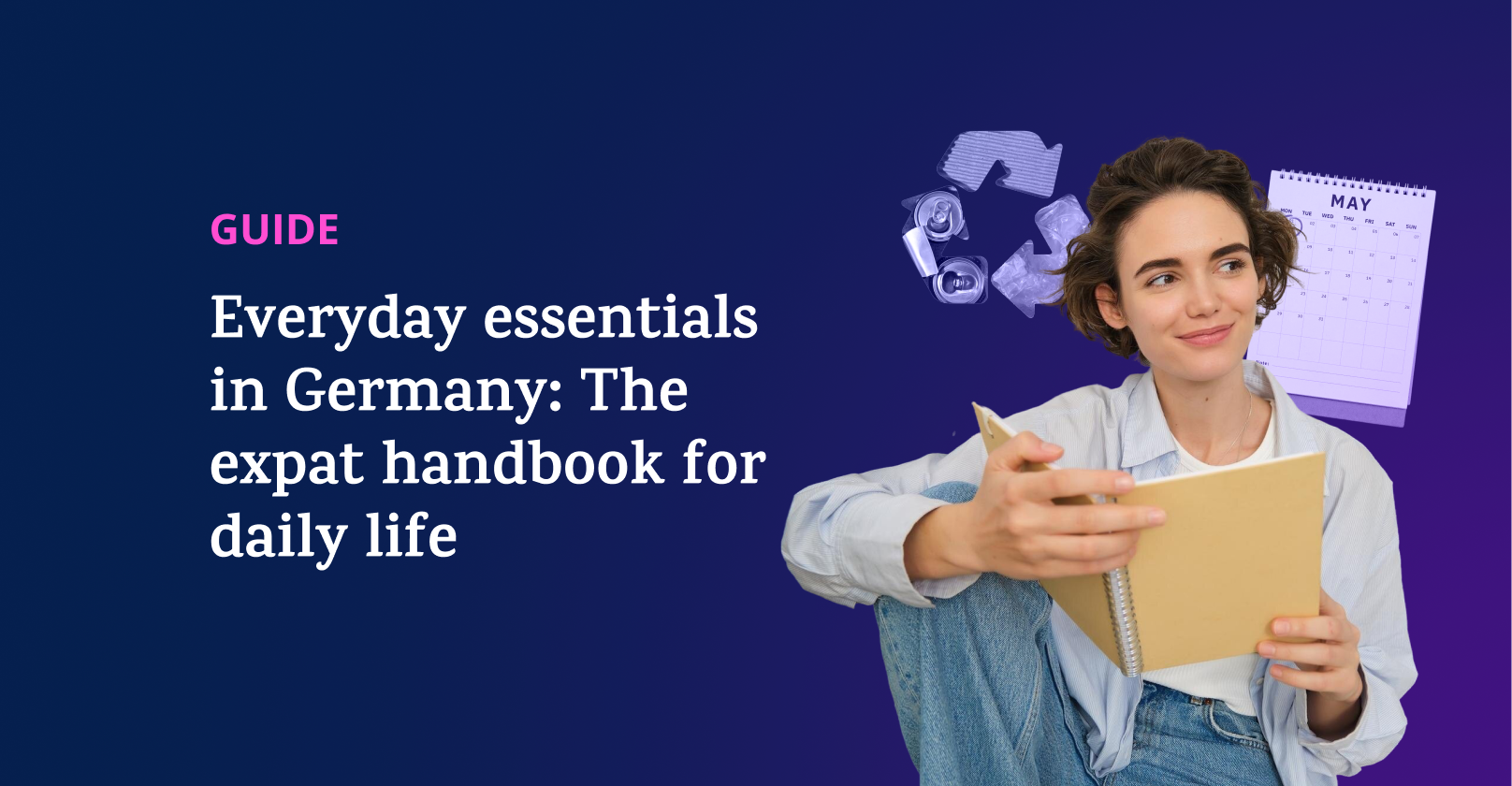How to talk to bureaucrats (and survive): Tips for dealing with German authorities
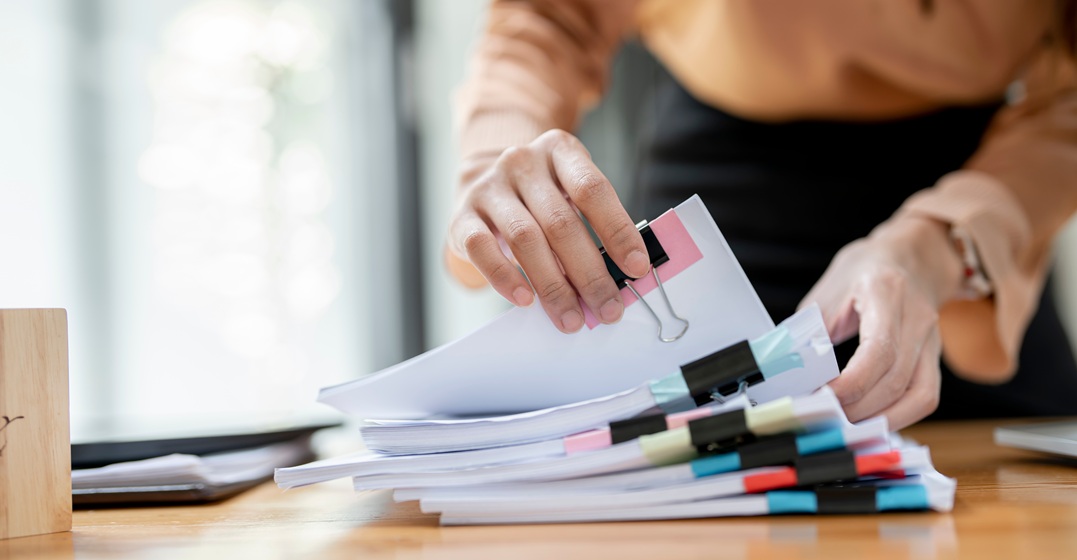
You wait three weeks for an appointment at the Bürgeramt. You take the morning off work and show up early with paperwork in hand… only to be told you’re missing die eine Bescheinigung — that one document no one mentioned but apparently everyone is supposed to just know about.
If this sounds familiar, welcome to the club. Whether you’re applying for a visa or simply trying to buy a stamp, dealing with German authorities can feel like a mix of logic puzzle and scavenger hunt. And it doesn’t help that you need to communicate in a language you’re still figuring out.
But here’s the good news: you’re not alone, and this doesn’t have to be chaos. With a bit of language prep, some cultural context and a few handy phrases, you can survive German bureaucracy (and even feel kind of proud afterward). Let’s walk through how to make the system work with you instead of against you.
- Why dealing with German authorities feels so hard
- Essential survival phrases
- What to expect culturally
- Prep tips for bureaucratic appointments
Why dealing with German authorities feels so hard
There’s a reason the phrase “German bureaucracy” triggers a stress response in even the most patient expats. It’s not just you — this system is famously dense, slow and unforgiving. Here’s why it feels like a battle every time, and why you might feel reminded of this scene from Rick & Morty on every visit to the Amt.
Language barrier
Let’s start with the obvious: German official-ese is a language all its own.
Even if you’re adept at conversational German, the bureaucratic variant includes notoriously difficult German words like Aufenthaltstitel (residence permit), Anmeldebestätigung (registration confirmation) and Ehegattennachzug (spousal reunification). On top of these cruel tongue twisters, official documents and conversations often use overly formal or passive phrasing that’s rarely taught in regular language courses.
So, instead of, “You need to bring your passport,” you might hear, "Es wird gebeten, den gültigen Pass vorzulegen.” The more convoluted phrasing isn’t wrong, exactly, but it is unnecessarily poetic — especially when you're already sweating in the waiting room.
System rigidity
There’s a beautiful logic to the German system... until you need something slightly out of the ordinary. Appointments can take weeks. One missing document? Come back next month. Forgot to bring a photocopy? Sorry, bitte neuen Termin vereinbaren.
As one Reddit user ranted in pure frustration:
“They might ask for that one document from two years ago... and they do.”
The system is deeply paperwork-based and often not digitized. You're expected to have physical folders organized, archived and ready to produce like you're preparing for a tax audit from 2004. Digital forms? Rare. Centralized information? Not really. It's DIY admin on an infinite loop.
Cultural expectations
Germans value efficiency, but also they also care deeply about structure. And sometimes, that structure doesn’t strike outsiders as particularly flexible.
There’s no small talk at the counter and no real room for negotiation. Punctuality is taken seriously (be late, and you may lose your slot). And while many officials speak English, it's not something you can count on — especially when things get complicated.
So, yes, it’s slow, paper-heavy and emotionally taxing. But it’s not impossible — and that’s where language can give you real power.
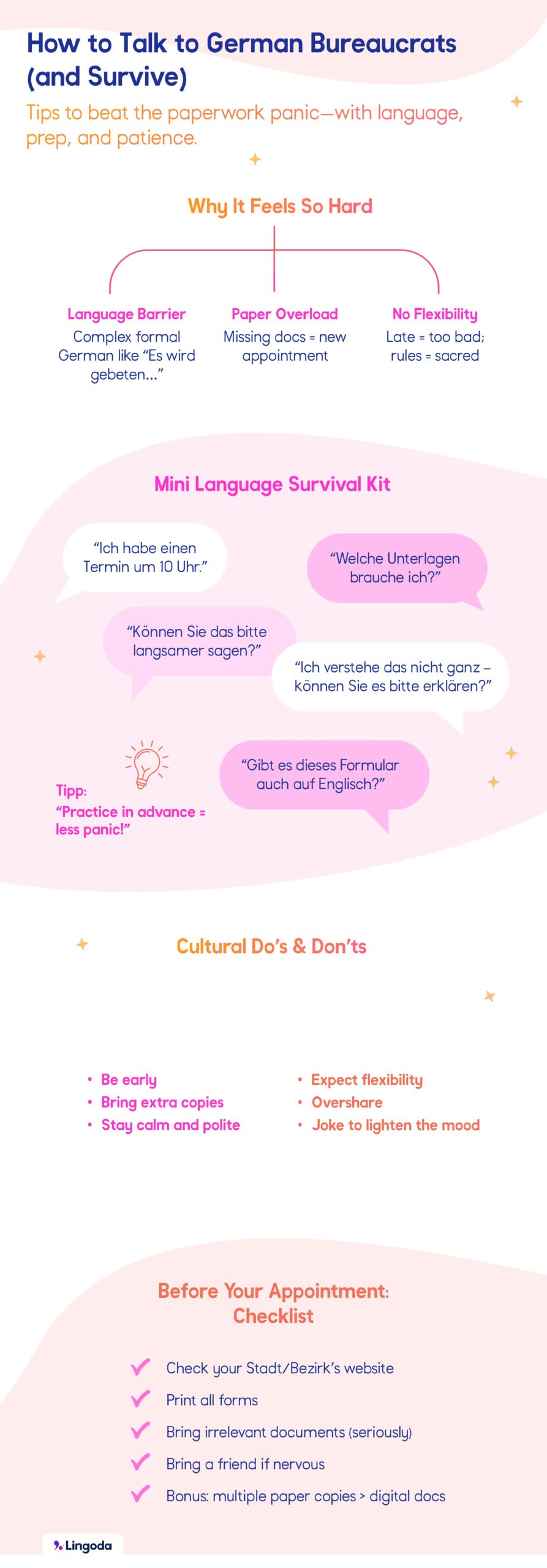
Essential survival phrases
Here’s your mini linguistic survival kit for German bureaucracy. These phrases won’t eliminate the paperwork, but they will help you get through the conversation without panic-flailing. Use them with a calm tone, and maybe even a slight smile (it won’t hurt).
- Ich habe einen Termin um 10 Uhr. (I have an appointment at 10 a.m.)
- Welche Unterlagen brauche ich? (Which documents do I need?)
- Können Sie das bitte langsamer sagen? (Could you please say that more slowly?)
- Gibt es dieses Formular auch auf Englisch? (Is this form available in English, too?)
- Ich verstehe das nicht ganz. Können Sie es bitte erklären? (I don’t fully understand. Could you please explain it?)
These phrases are simple but powerful. They show you’re making an effort while giving yourself room to breathe and clarify. Even better: practicing them in advance makes them second nature.
What to expect culturally
German bureaucracy isn’t warm and fuzzy, but that doesn’t mean it’s actively hostile. What may feel cold or impersonal is often just professional neutrality. Don’t mistake the lack of small talk or smiles for rudeness. It’s not personal — it’s protocol.
Here, it’s all about facts, not feelings. Telling your sob story (“But I just moved here and didn’t know…”) won’t carry much weight. What matters is the paper: documents, certificates, IDs. If it’s not printed, signed and ready to hand over, it might as well not exist.
And yes, timing is sacred. A 10:00 appointment means you’re expected at 9:55, not 10:01.
Do:
- Be early
- Bring extra copies of everything
- Stay calm and polite, even if it feels like a test
Don’t:
- Expect flexibility
- Tell your life story
- Joke around to “break the ice” — it usually doesn’t land
Bottom line: if you’re prepared and respectful, things usually go fine — even if no one offers you a coffee.
Prep tips for bureaucratic appointments
Think of your German bureaucratic appointment as a mini expedition: the more prepared you are, the less painful it’ll be. Here’s how to stack the odds in your favor.
First, always check the official website for your specific city (Stadt) or district (Bezirk). Requirements vary not just by state, but sometimes even between offices in the same city. Don’t assume Berlin rules apply in Hamburg, and even within Berlin, don’t expect service in Neukölln if you’re registered in Kreuzberg.
Second, bring everything. That includes documents you may think are irrelevant. It’s not uncommon to hear: “Haben Sie auch die Kopie von XY?” (“Do you also have a copy of…?”) If you do, you’re sitting pretty. If not — sorry, time to make a new appointment. One document to always have on hand is your Meldebescheinigung, which you’ll receive at your Anmeldung appointment.
Third, print forms ahead of time. Yes, Germans love paper. Most offices won’t accept digital documents shown on your phone. Fill out what you can in advance and bring copies just in case.
Finally, if you’re not confident in your German, bring a fluent friend or language partner. Most offices allow this, and having a backup can lower your stress level instantly. At the very least, it can help balance some of the power dynamics those little offices can potentially drown you in.
You’ve got this: Facing bureaucracy with confidence
German bureaucracy might feel like a maze, but it’s one you can get through — and millions of people do, every day. Life in Germany as an expat comes with its challenges, and bureaucracy is one of the biggest ones. Just remember, it’s not about being perfect; it’s about being prepared, staying calm and learning from each appointment (even the frustrating ones).
In fact, these official moments are golden opportunities to practice real, useful German. You’re not just handing over documents — you’re communicating your way through a complex system and gaining confidence with every small win.





